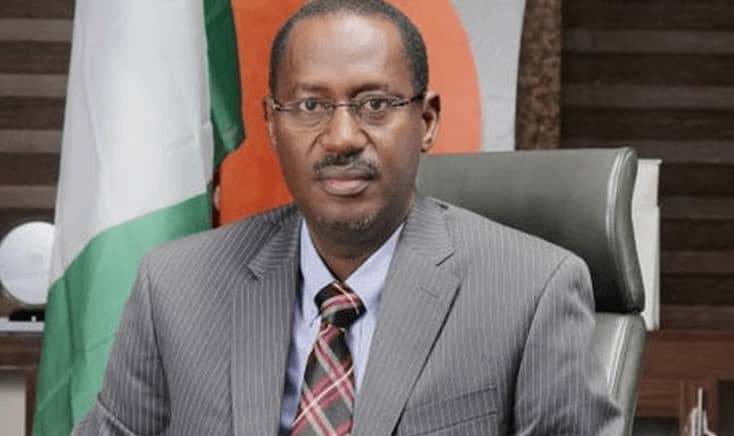The Federal Government of Nigeria, under the Renewed Hope Housing Programme, is undertaking a significant housing construction initiative across several northern states, including the Federal Capital Territory (FCT), Kano, Benue, and others. This ambitious project aims to construct 6,112 housing units, contributing to the administration’s broader vision of leveraging housing as a catalyst for economic growth, job creation, and social stability. The Minister of Housing and Urban Development, Ahmed Dangiwa, unveiled the program’s progress, highlighting its multifaceted approach to addressing housing needs and community development in the region. The initiative is not merely about building houses, but about creating sustainable communities with integrated infrastructure and amenities, fostering economic empowerment, and providing humanitarian support to displaced populations.
A substantial portion of the housing units, 4,612, are being constructed under the Renewed Hope City projects. The largest share is allocated to Karsana in the FCT, with 3,112 units, followed by Kano with 1,500 units under the Renewed Hope City project and an additional 500-unit estate. Further contributing to the total, the Renewed Hope Estate projects have seen the completion of 250 units each in Katsina, Gombe, Yobe, Sokoto, Benue, and Nasarawa states, accumulating to 1,500 units. This distribution across various states aims to address housing deficits and stimulate economic activity in different parts of the northern region. The strategic allocation of housing units underscores the government’s commitment to equitable development across the region.
Beyond the sheer number of housing units, the government is prioritizing the creation of livable communities. Each project site is being developed with essential infrastructure, including integrated road networks, water systems, solar lighting, and other basic amenities. This integrated approach ensures that the new housing developments are not just standalone structures but contribute to the overall development of thriving communities. The provision of these essential services is crucial for the long-term sustainability and viability of the housing projects, enhancing the quality of life for residents.
The Renewed Hope Housing Programme is not just about bricks and mortar; it’s also about creating jobs and empowering local economies. According to Minister Dangiwa, the projects have already generated over 152,000 direct and indirect jobs across the northern region. This significant job creation has positively impacted local communities, with artisans earning substantial incomes, contributing to household finances and boosting local economic growth. The program’s emphasis on job creation aligns with the administration’s broader economic development strategy, promoting self-reliance and improving living standards.
Looking beyond the immediate scope of the current projects, the Ministry of Housing and Urban Development has ambitious plans to expand the reach of the Renewed Hope Social Housing Programme. The goal is to deliver 100 affordable homes in each of Nigeria’s 774 local government areas. This expansive vision aims to address the housing needs of a wider population across the country. To facilitate this ambitious target, the ministry is actively exploring mortgage and rent-to-own financing options, making homeownership more accessible to a larger segment of the population. Furthermore, the development of building material manufacturing hubs is being pursued to reduce construction costs, ensuring the affordability and sustainability of the housing projects.
Addressing the needs of displaced populations is another crucial aspect of the housing program. In response to the humanitarian crisis caused by conflicts, 252 homes are being constructed across seven northern states: Kaduna, Katsina, Zamfara, Kebbi, Niger, Benue, and Sokoto. These homes are specifically intended to resettle families displaced by conflict, providing them with safe and stable housing. A pilot site in Tudun Biri, Kaduna State, is already underway to support victims of the December 2023 military airstrike, demonstrating the government’s commitment to providing immediate relief to those affected by conflict and displacement. This initiative underscores the government’s commitment to providing support and rebuilding the lives of vulnerable populations.
The Ministry’s efforts extend beyond housing construction to encompass urban renewal and slum upgrading. Over 150 urban renewal and slum upgrade projects have been completed, with an additional 100 currently in progress. This comprehensive approach aims to improve living conditions and enhance infrastructure in existing urban areas. Key locations for these projects include Tudun Wada in Sokoto, Yankaba in Kano, and Tunga in Niger State, targeting areas in need of revitalization and improved infrastructure. These projects demonstrate the government’s commitment to holistic urban development, addressing both housing needs and the broader urban environment.
Through its Special Projects Unit, the Ministry has invested over N61 billion in various community development projects. This investment has resulted in the construction of 71 classrooms, 15 health centers, 58 boreholes, and 63 rural access roads, further contributing to improved living standards and access to essential services in rural communities. These projects have also generated over 10,700 jobs, demonstrating the ripple effect of investment in infrastructure and community development. The focus on education, healthcare, and access to clean water signifies the government’s commitment to improving the overall well-being of communities.
The Renewed Hope Housing Programme, with its multifaceted approach, represents a significant commitment by the Federal Government to address housing needs, generate employment, and improve the living conditions of Nigerians, particularly in the northern region. The program’s focus on integrated infrastructure, community development, and humanitarian support highlights a holistic approach to development, aiming to create sustainable and thriving communities. The initiative’s success in generating employment and providing support to displaced populations underscores its impact on the lives of ordinary Nigerians. Minister Dangiwa’s presentation paints a picture of a government actively engaged in addressing critical challenges and building a better future for its citizens.


